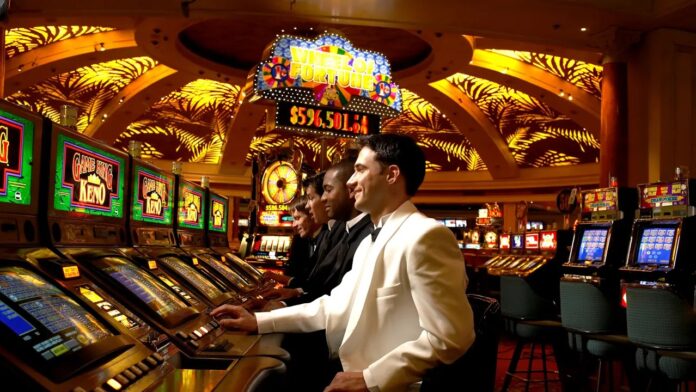Is Las Vegas Losing Its Appeal to the Average Traveler?
As tourism in Las Vegas continues to decline, the city’s pricing strategies and target demographics have come under increasing scrutiny. With reports of rising costs and a shift toward appealing primarily to affluent visitors, many are questioning whether the glitzy destination still caters to the average traveler.
Price Hikes Deter Average Visitors
The Las Vegas Convention and Visitors Authority (LVCVA) recently announced that July visitor numbers fell by 12% compared to the previous year. Over 3 million tourists visited the city this July, a stark contrast to over 3.5 million in 2022. The occupancy rate on the Strip also experienced a decline, dropping from 86.5% to 79.5%.
Online discussions, especially in forums such as "r/LasVegas" on Reddit, reflect a growing sentiment that Las Vegas is "overpriced and out of touch." One Reddit user expressed frustration over the cost of visiting, stating that the city now seems more focused on attracting wealthier clientele than accommodating budget-conscious travelers.
A Strategic Shift Towards Luxury
The argument is gaining traction that Las Vegas has strategically pivoted its priorities. Rather than being a playground for everyone, it now targets a select group of tourists—those with considerable disposable income. Comments from Reddit users emphasize this shift, describing the Strip as becoming "curated" and "exclusive."
Economists and industry insiders suggest this transformation was not only intentional but also a calculated response to changing market dynamics. Las Vegas brands have begun to focus heavily on high-end experiences, reinforcing the idea that the traditional appeal to families and casual visitors is fading.
Growing Wealth Disparity
Media outlets and local personalities have echoed the frustrations of the general public. Rick Harrison, star of "Pawn Stars," dubbed the increased prices on the Strip “insane,” attributing the soaring costs to what he describes as a “COVID hangover.” He highlighted the annoying additional charges, such as resort fees and parking fees, that add to the final bill for unsuspecting visitors.
Further complicating matters is the perception that Las Vegas no longer seeks to attract a diverse demographic—people like “Jim & Marleen from Arkansas who won’t gamble,” as noted by another Reddit user. Instead, the focus is clearly on customers who will spend freely, such as “Bradley & Stephanie from California.”
Booming High-End Markets
Despite the downturn in average tourism, some sectors in Las Vegas are thriving. Derek Stevens, CEO of Circa Casino and Resort, remarked that high-end market growth is starkly disproportionate to challenges faced at the budget-friendly end.
Private jet charter companies are witnessing business booms, serving millionaires, billionaires, and high-profile entertainers who now frequent the city. Companies catering to this affluent clientele report increased demand, underscoring the growing divide in who gets to enjoy what Las Vegas has to offer.
The Future of Las Vegas Tourism
As the city caters increasingly to its wealthy visitors, many wonder about the future landscape of tourism in Las Vegas. With a growing number of high-profile events and exclusive experiences, will the average traveler forever find themselves priced out? Describing the current situation, industry experts suggest that while opportunities abound for those with means, Las Vegas has become a less welcoming destination for the everyday visitor.
This shift raises important questions about accessibility in tourism and the impact of high pricing structures on a city’s identity. As the dust settles on this new strategy, only time will tell how it will reshape the iconic Las Vegas experience.
